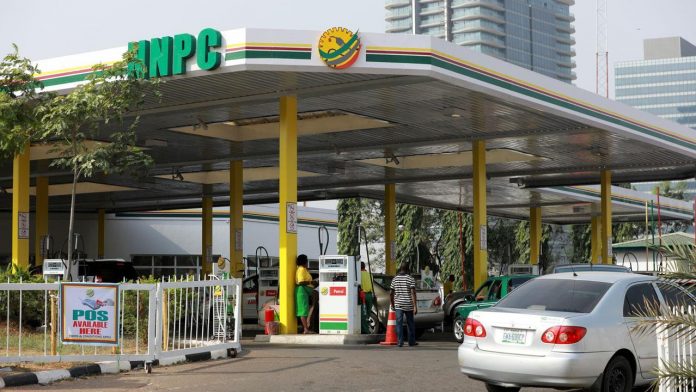In light of the current tight situation, the Nigerian National Petroleum Company Limited (NNPC Ltd.) said fuel stations will be operating extended hours for the supply and distribution of gasoline. Fuel stations are also urged to improve their availability.
According to NNPC Ltd., in order to alleviate the current situation, PMS transportation turnaround times have also been extended. This was stated on Monday in Abuja by Mr. Dapo Segun, the Executive Vice President of NNPC Ltd.’s downstream division, during a joint station inspection by the company and representatives of the Nigerian Midstream and Downstream Petroleum Regulatory Authority (NMDPRA).
To make sure that lines vanished, the NNPC Ltd. and the NMDPRA started working together to monitor the distribution and supply of gas stations in the Federal Capital Territory (FCT) and throughout the nation.
The NNPC Ltd. had said that fuel queues in the FCT and parts of the country were a result of disruptions in ship-to-ship (STS) transfer of fuel between mother vessels and daughter vessels resulting from recent thunderstorms.
It said adverse weather conditions, including rainstorms and lightning, had also affected berthing at jetties, truck load-outs, and the transportation of products to filling stations, causing a disruption in station supply logistics.
Speaking during the inspection, Segun said there was a gap in ship-to-shore discharge of PMS, which he described as a volatile liquid, adding that during thunderstorms it could not be discharged but rather had to suspend ship-to-shore movement.
“This also affected the loading of trucks at the depot because of safety reasons, so we have to suspend all that during thunderstorms, and that’s why you see this tightness.
“Though we have a challenge over the bad portions of motorways that deteriorated due to rains and floods across the country, we will ensure that we are loading out all through the weekend and that we are mobilising trucks.
“We are getting fuel stations to run for longer hours, and we are getting marketers to collaborate and share stocks; rather than having a station with more trucks, they can release those trucks to other stations for circulation,’’ he said.
Mr. Ogbugo Ukoha, Executive Director, Distribution Systems, Storage, and Retail Infrastructure, NMDPRA, said the tightness in Abuja and parts of Lagos arose from the inclement weather, which affected operations offshore and routes trucks ply.
When asked about its effort to stop hoarding and the nefarious activities of black-marketers, Ukoha said its officials were on the ground, going through the stations and depots to make sure that there was no hoarding.
“Due to the tightness in supply, there may be elements who will try to take advantage of that. We assure Nigerians to go about their businesses and purchase the volume they need without panic,’’ he said.
On any plan to increase fuel pump prices, Ukoha said there was no intention or any anticipated plan to increase pump prices, adding that the two organisations would continue to collaborate to ensure energy security.
On this background, he said, the authority had done its regulation on national strategic stock and framework, adding that it was at the threshold of operationalizing the framework.
“Again, the sensitivity of the pump price is another matter; once those national strategic stocks are in place, the logistic issues we have will be mitigated to a large extent and stabilise both supply and prices,” Ukoha added.
The team inspected fuel stations in the FCT, including the NNPC Ltd. Retail Outlet at Katampe and the AP fuel station located at Ibrahim Way, Garki 2, which have long queues.
The stations’ managers also confirmed the availability of enough stock, adding that the stations’ pumps dispensed accurately and relied on constant energy to dispense fuel to motorists.
Motorists on the ground also appealed to the government to find lasting solutions and expressed mixed feelings, as some spent longer queuing for fuel while others did not waste time before their turns.
















